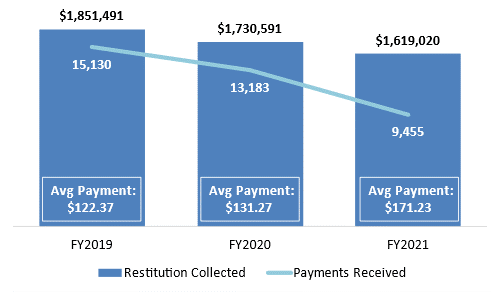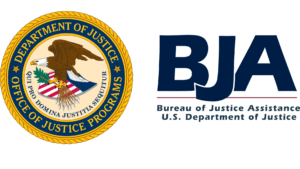Rhode Island: Monitoring Data Trends after 2017 Justice Reinvestment Initiative Reforms
In 2015, Rhode Island sought technical assistance under the Justice Reinvestment Initiative (JRI) program to address various challenges in the state’s criminal justice system. At that time, Rhode Island had the second highest probation population rate in the country, with high probation revocation rates and long probation terms contributing to a growing prison population. The Rhode Island Superior Court Rules of Criminal Procedure and Sentencing Benchmarks were amended in June 2016 limiting probation lengths to three years for nonviolent offenses and enabling early termination of probation for individuals meeting certain criteria. Subsequently, the Rhode Island legislature passed a total of six JRI bills in September 2017. Since then, the sentenced prison population and overall supervised population have declined. This brief highlights these and other accomplishments. Photo credit: Photo by Joseph Sohm via Shutterstock.
Background
In 2015, Rhode Island sought technical assistance under the Justice Reinvestment Initiative (JRI) program, which is funded by the U.S. Department of Justice’s Office of Justice Programs, Bureau of Justice Assistance and The Pew Charitable Trusts, to address various challenges in the state’s criminal justice system. At that time, Rhode Island had the second highest probation population rate in the country, with high probation revocation rates and long probation terms contributing to a growing prison population. Additionally, pretrial risk assessments and behavioral health screenings were not available for the judicial decision-making process, and there were unclear requirements for existing diversion options. Less than 40 percent of the probation population was actively supervised, while supervision for people at a higher risk of reoffending was inadequate. To address some of these challenges, the Rhode Island Superior Court Rules of Criminal Procedure and Sentencing Benchmarks were amended in June 2016 limiting probation lengths to three years for nonviolent offenses and enabling early termination of probation for individuals meeting certain criteria. Subsequently, Rhode Island Governor Gina Raimondo signed a total of six JRI bills in September 2017 that enacted the following policies:
- HB 5063/SB 7: Expands the types of reimbursable crime victim compensation program expenses and increases the time limit for victims to report the crime and apply to the program
- HB 5064/SB 10: Allows for the establishment of a superior court diversion program and requires the pretrial services unit to provide pre-arraignment reports
- HB 5065/SB 6: Establishes the Batterer’s Intervention Program (BIP) fund and ensures minimum standards for BIPs; requires the use of risk and needs screening and assessments, as well as other evidence-based practices, in probation and parole supervision
- HB 5115/SB 11: Establishes a new threshold for felony assault cases and a graduated penalty structure for felony property crimes
- HB 5117/SB 8: Adds potential responses for probation violations and requires sentencing in accordance with judicial benchmarks; requires probation violation hearings to be held within 30 days of arrest
- HB 5128/SB 9: Requires the Department of Corrections (DOC), in conjunction with the Office of Performance Management, to collect data to monitor the implementation of JRI policies from 2017 to 2022
Visit our website for additional information.
Impacts of Legislation
Rhode Island’s sentenced prison population has declined by 34 percent, from 2,249 at the end of fiscal year (FY) 2017 to 1,494 at the end of FY2021. While some of the decline can be attributed to the COVID-19 disruption, the sentenced prison population had already declined by 12 percent by the end of December 2019. The DOC has also seen a 21 percent decline in the overall supervised population since FY2017, with the majority of the decline taking place among individuals convicted of nonviolent crimes and breaking-and-entering crimes. Revocations from supervision declined in FY2020 and FY2021, but the impact of the COVID-19 pandemic cannot be differentiated from revocation trends resulting from JRI policy changes.
Numerous accomplishments within the courts have also been achieved in the state. The Rhode Island Superior Court diversion program launched in January 2020. In the first 18 months of the program, there have been nearly 750 individuals accepted by the court into the program, and it is operating with a monthly caseload of approximately 316 participants. The criminal courts in Rhode Island began using a Domestic Violence Screening Instrument (DVSI) in November 2019. Since that time, there have been 482 completed screenings of misdemeanor case filings and 1,393 completed screenings of felony case filings as of June 2021. Over the past fiscal year, DVSI screenings have been completed for 9 percent of all misdemeanor domestic violence cases filed and 61 percent of all felony domestic violence cases filed.
The Rhode Island Department of Public Safety website now features a publicly available JRI data dashboard that provides various metrics on individuals awaiting trial, sentenced individuals, and individuals under community supervision. Additional metrics relating to pretrial diversion programs, cognitive behavior programs, and BIPs, as well as a host of metrics about responding to violations of supervision, will be added to the dashboard in the future.
Public Safety Impacts
Rhode Island’s reforms are centered on focusing criminal justice resources on the people who need them most, launching a diversion program to offer certain individuals an alternative to traditional conviction and sentencing, screening cases for eligibility for early discharge from probation, and using a screening tool in the criminal courts to identify individuals who may be at high risk to commit a domestic violence-related offense. Since the start of JRI, Rhode Island experienced declines in both the overall probation population and probation revocations. Although the effects of JRI are conflated with the effects of the COVID-19 pandemic, the result of these changes is that supervision officers can focus time and resources on people at the highest risk to recidivate. Crime rates have not increased during this time. The property crime rate in Rhode Island has declined steadily over the past 10 years; violent crime trends have been more inconsistent over this period, but the trajectory is downward.
Ten-Year UCR Crime Trends for Rhode Island:
2011–2020¹
Rhode Island Sentenced Population:
Actual and Projected, 2010–2022²
Rhode Island’s Supervised Population: July 2016–June 2021³
Selected Policy and Reform Outcomes
Phase I analysis of Rhode Island’s criminal justice system culminated in several policies to address the lengthy probation supervision terms and high supervision caseloads. The Risk Assessment Unit (RAU) within the DOC is responsible for early termination screenings to verify whether a person on probation is eligible for consideration by the courts under Court Rule 35c.
Probation Cases Screened for Early Terminations,
FY2017–FY20214
To date, the RAU has screened nearly 2,000 cases for early probation termination eligibility and has granted a certificate of eligibility to 773 cases, approximately 41 percent. Cases that are granted a certificate by the RAU are then submitted to the appropriate court for early release consideration. Data from the superior courts indicate that judges approved 86 percent5 of probation cases that were submitted to the courts for early termination from FY2019 through FY2021. This suggests that approximately one-third of the cases originally screened by the RAU result in an early termination from supervision once the courts have received and reviewed them.
Percent Change for Individuals under Supervision,
by Offense Type, June 2017–June 20216
In addition to the early termination from supervision policy, the supreme court amended the superior court’s Rules of Criminal Procedure and Sentencing Benchmarks to cap probation supervision length at three years for nonviolent offenses. This change resulted in a decline of 18.5 percent in the total number of people on probation, with half of that decline occurring prior to the COVID-19 pandemic. The chart above indicates that the decline varied by type of offense.
Referrals, Acceptances, and Participants in the Superior Court Diversion Program, January 2020–June 20217
Within the first 18 months of the launch of the superior court diversion program, over 1,500 people were referred and over 700 people were accepted into the program, almost half of all referrals. The program had a caseload of approximately 320 active participants per month during the first 6 months of 2021.
Restitution Collected and Payments Received, FY2019–FY20218
Both the total amount of restitution collected and the number of restitution payments have declined somewhat over the past three fiscal years, possibly due to the disruption caused by the COVID-19 pandemic. However, the average amount collected per payment increased during this time frame.
Average Monthly Probation Revocations by Type, FY2017–FY20219
The Rhode Island DOC adopted numerous policy reforms after JRI. For instance, the department screens all new probation placements with the Level of Service Inventory – Revised (LSI-R) screening instrument. Supervision level is based on the risk assessment results so that supervision officers can focus resources on individuals who are at the highest risk of reoffending. While these reforms were intended to reduce technical revocations, it may take more time for the reforms to realize reductions. Additionally, while the COVID-19 pandemic resulted in temporary declines in revocations, these trends may not continue in 2022 as temporary supervision changes to protect both public safety and public health come to an end.
Ongoing Work Related to Reforms
In addition to adopting a domestic violence lethality assessment during the pretrial phase of judicial proceedings, Rhode Island has been awarded a federal grant to assess and improve its systemic responses to domestic violence. In conjunction with staff from The Council of State Governments Justice Center, Rhode Island is assessing every aspect of its response to domestic violence, beginning with community programs and moving through multiple intercepts, including law enforcement, the courts, corrections, community supervision, and providers of Batterer Intervention Programs. In April 2022, Governor Daniel J. McKee signed Executive Order 22-25, which established an Executive Working Group to oversee this effort, report on progress, and propose policy options.
Rhode Island’s Reinvestments10
Rhode Island invested $2.4 million in community programming, pretrial assessments, and contracts for medication-assisted treatment, leveraging Medicaid dollars for the first two years of JRI implementation. In addition, the state received nearly $384,000 in subaward funding to improve the state’s data systems, conduct training, and increase data sharing and transparency.
Subaward Allocations11
Endnotes
1 Federal Bureau of Investigation Uniform Crime Report, “estimated_crimes_1979_2020.csv,” accessed February 15, 2022, https://crime-data-explorer.app.cloud.gov/pages/explorer/crime/.
2 Actual population figures are provided by the Rhode Island Department of Corrections in monthly reports; CSG Justice Center modeled the impact projection through FY2022.
3 Rhode Island Department of Corrections monthly tracking spreadsheet, “RIDOC Data Tracking_v5.1 (updated October 2021).xlsx”
4 Ibid.
5 Rhode Island Superior Courts monthly tracking spreadsheet, “Data Tracking v7.0 CURRENT through July 2021 FINAL.xlsx”
6 Rhode Island Department of Corrections monthly tracking spreadsheet, “RIDOC Data Tracking_v5.1 (updated October 2021).xlsx”
7 Rhode Island Superior Courts monthly tracking spreadsheet, “Data Tracking v7.0 CURRENT through July 2021 FINAL.xlsx”
8 Ibid.
9 Rhode Island Department of Corrections monthly tracking spreadsheet, “RIDOC Data Tracking_v5.1 (updated October 2021).xlsx”
10 CSG Justice Center summary of Rhode Island reinvestments.
11 CSG Justice Center, “RI_phase II wrap-up slide doc_final_DD 4-23-19.pdf”.
This project was supported by Grant No. 2019-ZB-BX-K002 awarded by the Bureau of Justice Assistance. The Bureau of Justice Assistance is a component of the Department of Justice’s Office of Justice Programs, which also includes the Bureau of Justice Statistics, the National Institute of Justice, the Office of Juvenile Justice and Delinquency Prevention, the Office for Victims of Crime, and the SMART Office. Points of view or opinions in this document are those of the author and do not necessarily represent the official position or policies of the U.S. Department of Justice.
Project Credits:
Writing: Angela Gunter, David D’Amora, Alison Martin, CSG Justice Center
Research: Angela Gunter, CSG Justice Center
Advising: Elizabeth Lyon, CSG Justice Center
Editing: Leslie Griffin, CSG Justice Center
Public Affairs: Brenna Callahan, CSG Justice Center
Web Development: Eleventy Marketing Group
About the authors



Arkansas policymakers have long expressed concerns about the state’s high recidivism rate. Over the past 10 years, an…
Read MoreIn April 2025, Arkansas Governor Sarah Huckabee Sanders signed a package of bipartisan criminal justice legislation into law,…
Read More Explainer: Key Findings and Options from Arkansas’s Justice Reinvestment Initiative
Explainer: Key Findings and Options from Arkansas’s Justice Reinvestment Initiative
Arkansas policymakers have long expressed concerns about the state’s high recidivism rate.…
Read More Explainer: How a New Law in Arkansas Tackles Crime, Recidivism, and Community Supervision Challenges
Explainer: How a New Law in Arkansas Tackles Crime, Recidivism, and Community Supervision Challenges
In April 2025, Arkansas Governor Sarah Huckabee Sanders signed a package of…
Read More




















